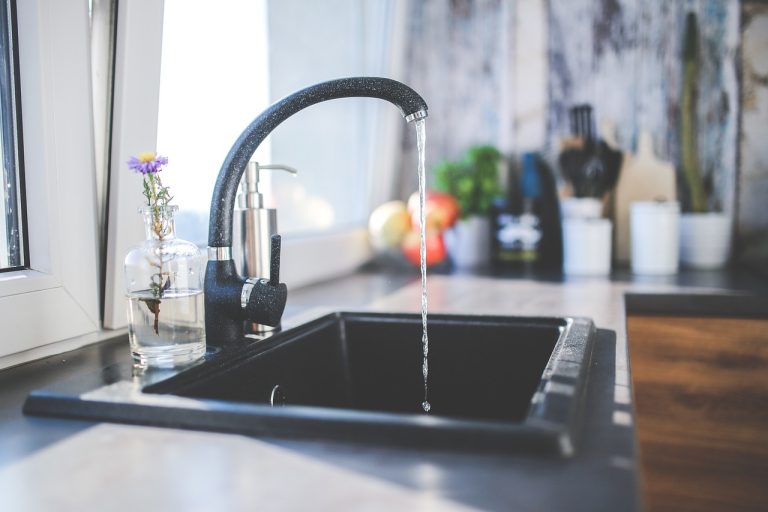Water meter vs water rates – Which option is cheaper for your home? Is it cheaper to have a meter and pay for what you use or rates, where you pay an average for the size of your home?
The two approaches are very different and one will work better for some households than others.
Not everyone will have a choice whether you use a water meter or pay water rates. But, if you do, or are considering getting a meter, read this first.
The following is relevant to England and Wales only. The maths still works for Scotland but you’ll have to pay (quite a lot) to have a meter installed which changes everything.
How does a water meter work?
A water meter works in exactly the same way as your electricity meter or gas meter. As water flows into your home when it’s used, the meter measures it and is fed back to the water company.
The more you use, the more you pay.
We use meters for accurate billing for gas and electricity, it seems to make sense to only pay for the water you use, right?
Perhaps.
How do water rates work?
Water rates charge a fixed price based on the ‘ratable value’ of your home. It doesn’t matter how much water you use, you’re charged a fixed price.
The higher the value of your home, the higher your water rates. Regardless of how many bedrooms it has or how many people live there.
Water meter vs water rates
You can immediately see from the explanations that both systems have pros and cons.
A water meter is better if you live in an expensive house but don’t use much water as it should reduce the amount you pay.
Water rates work better if you live in a house with a lower value but there are more of you that live there.
The common method to work out whether a meter or rates work best is how many people there are in the home vs how many bedrooms you have.
For example, if there are two of you living in a 3 bedroom house, you will likely save money with a meter.
You probably won’t use all that much water and may have a higher rateable value, which means you could be paying too much if it was water rates.
If there are 4 of you living in that same 3 bedroom house, you may save more by paying rates.
Four people would use more water than 2, which means paying for what you use may not work out the best financially.
According to Thames Water, if you have a water meter typically use around 12% less water and will often spot leaks quicker.
Benefits of a meter
There are distinct benefits of having a water meter:
- You could save money. If you live in a small household or have a low water usage, you may be able to save money by switching to a meter. Your water bill will be based on your actual water usage, rather than an estimate.
- You can be more water conscious. Having a water meter can help you to track your water usage and identify areas where you can save water. This is good for the environment and your wallet!
- You can detect leaks early. A meter can alert you to leaks in your plumbing system. This is important because leaks can waste a lot of water and damage your property.
- You have more control over your bill. With a water meter, you can choose to pay for your water usage in advance or in arrears. This gives you more control over your finances and can help you to budget for your water usage.
- It’s free to install. In England and Wales, water companies are required to install meters for free if you request one. This is a great opportunity to save money and become more water conscious!
Downsides of a meter
There are downsides to using a water meter too:
- You may pay more for water. If you live in a large household or have a high water usage, you may end up paying more after switching to a meter.
- You may not be eligible for certain water discounts. Some water companies offer discounts to customers who live in certain areas or who have certain water usage patterns. If you switch to a water meter, you may not be eligible for these discounts.
- You may have to pay for leaks. If you have a leak in your plumbing system, you will be responsible for paying for the water that is wasted.
- You may have to pay for meter reading and maintenance. Your water company may charge a fee for reading your meter and for maintaining it. This fee is usually small, but it is something to be aware of.
- You may have to pay a connection charge. If you do not already have a meter, you may have to pay a connection charge to have one installed.
Water meter vs water rates – Which is best?
Meters mean you pay for what you use, which can work out the cheapest. Water rates means paying a flat fee regardless of how much water you use.
This water meter calculator can give you an idea of whether a meter would benefit you or not.
You’ll need your last water bill as there’s some data required, but it’s a pretty good way to see if a meter or rates work out best for your situation.

